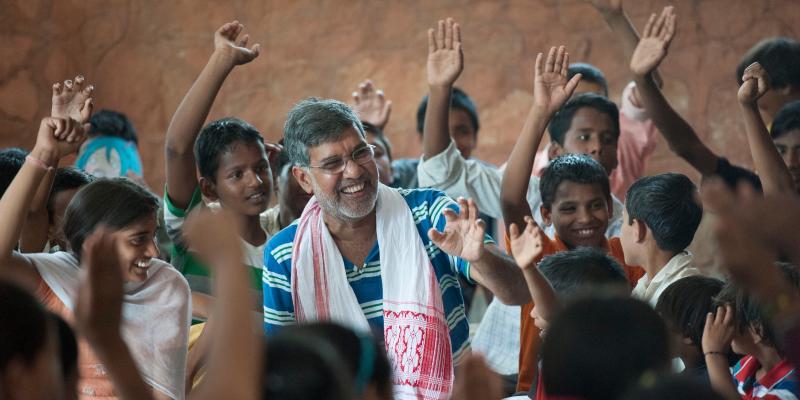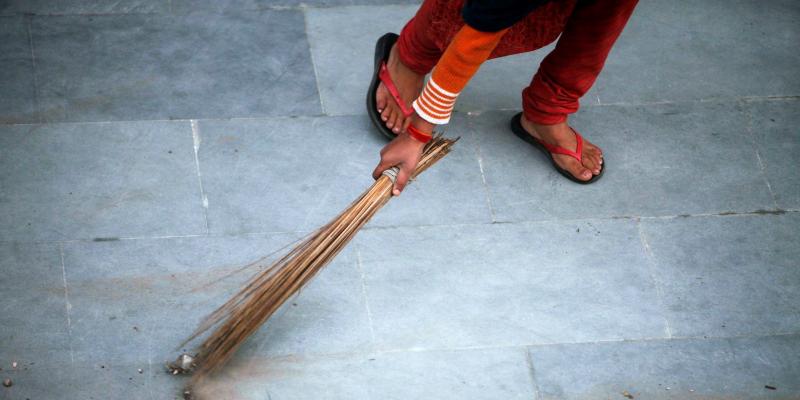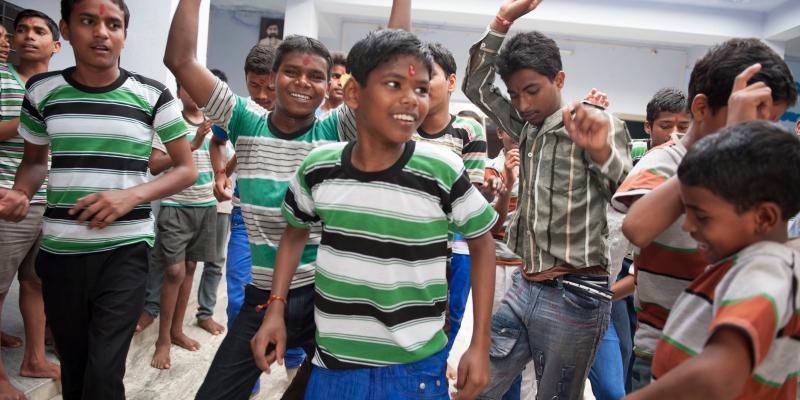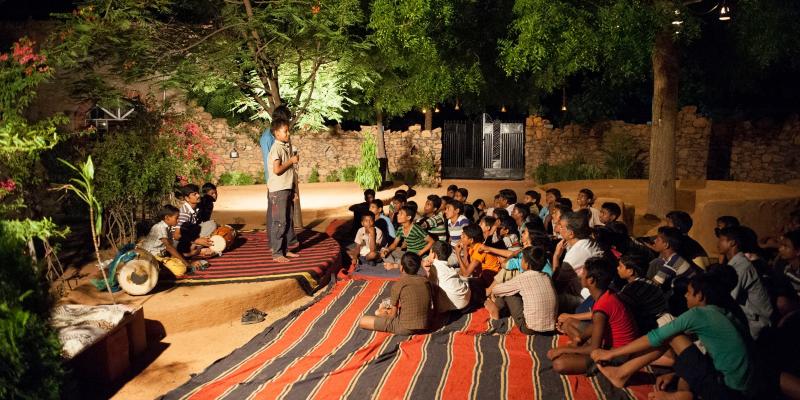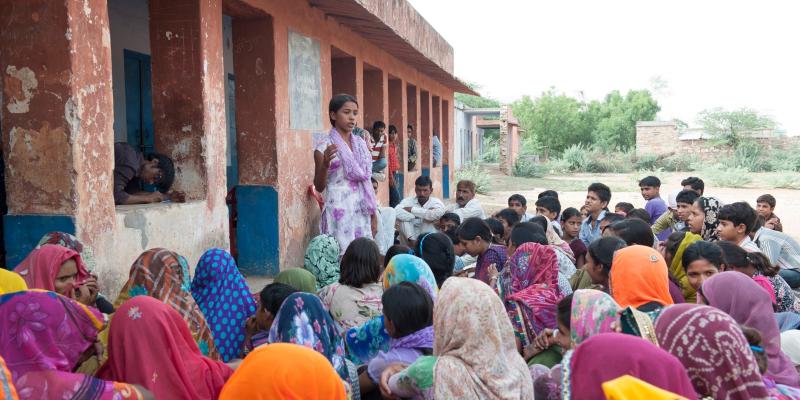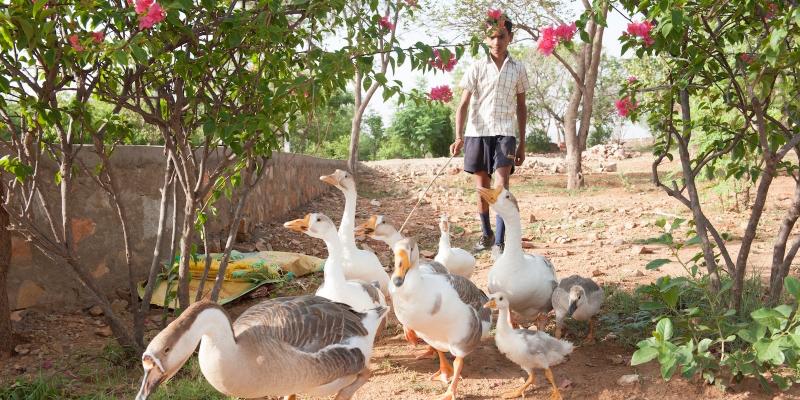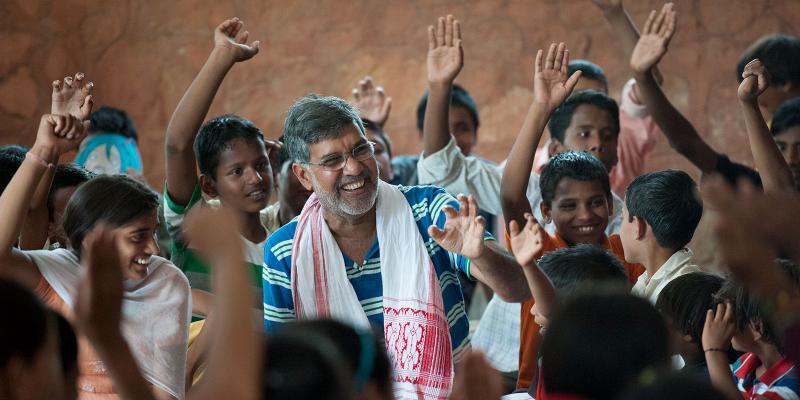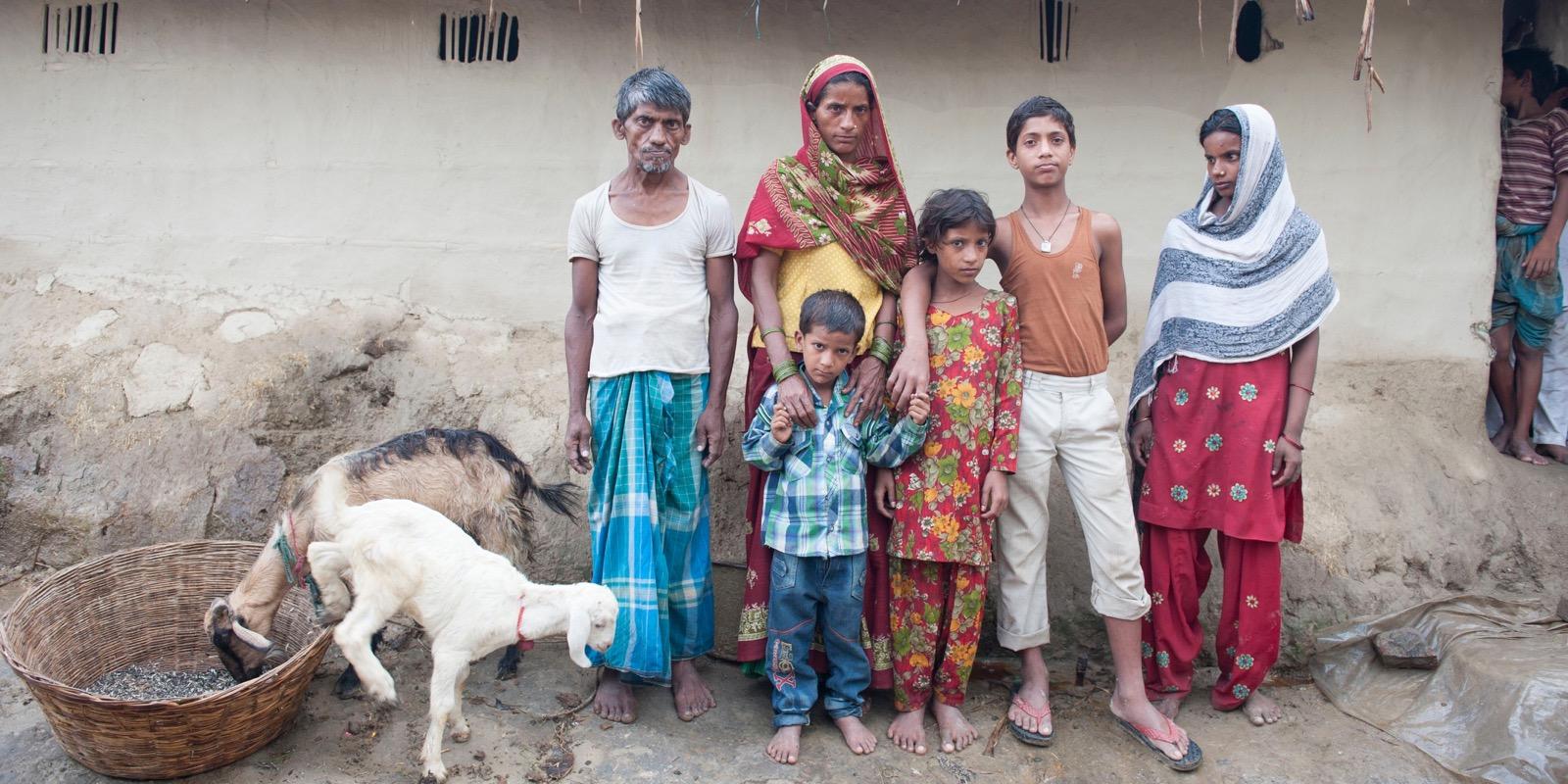
When Imtyaz is nine, his father is forced to travel away from home in search of work. A storm has destroyed almost the whole village. Imtyaz’s family is extremely poor and needed all their savings to rebuild their house, from clay, straw and bamboo. Imtyaz and his siblings wear ragged, worn clothing and are always hungry.
One day a neighbour comes to visit. Imtyaz’s mother is surprised and a little afraid. The man is from the richest family in the village, and they don’t usually talk to poor villagers. But now he is talking in a kind voice and smiling.
“Your son is wasting his time here,” he says. “Let me take him to the capital city, New Delhi. I will pay for his education if he works a few hours a week to cover food and accommodation. I know things are hard for you at the moment.”
Imtyaz really wants to go to the capital city. It has wide streets and buildings as tall as the sky. All the big movies are shot there. He might even meet one of his movie star idols there!
Imtyaz’s mother has never been to school, but she wants her children to get an education. She agrees to the neighbour’s proposal.
On the way
The very next morning, Imtyaz and six of his friends meet at the roadside, where their neighbour is waiting with a truck. The boys climb in the back and they head off towards the nearest town along bumpy dirt roads. The boys have to hold on tight so that they don’t fall off, while they talk about the new life that awaits them. But on the train to Delhi, they all get travel sick. None of them have travelled by train before and Imtyaz is sick again and again as the train lurches round the bends.
On the way from the train station Imtyaz sees high buildings, statues and beautiful parks full of roses outside the car window. He is amazed by how smooth the car journey is, as he has never travelled on asphalt before. Soon they enter a maze of narrow alleyways, finally stopping outside a house that has been turned grey by soot and dirt. The neighbour leaves them in a small room where they eat and watch TV before falling asleep.
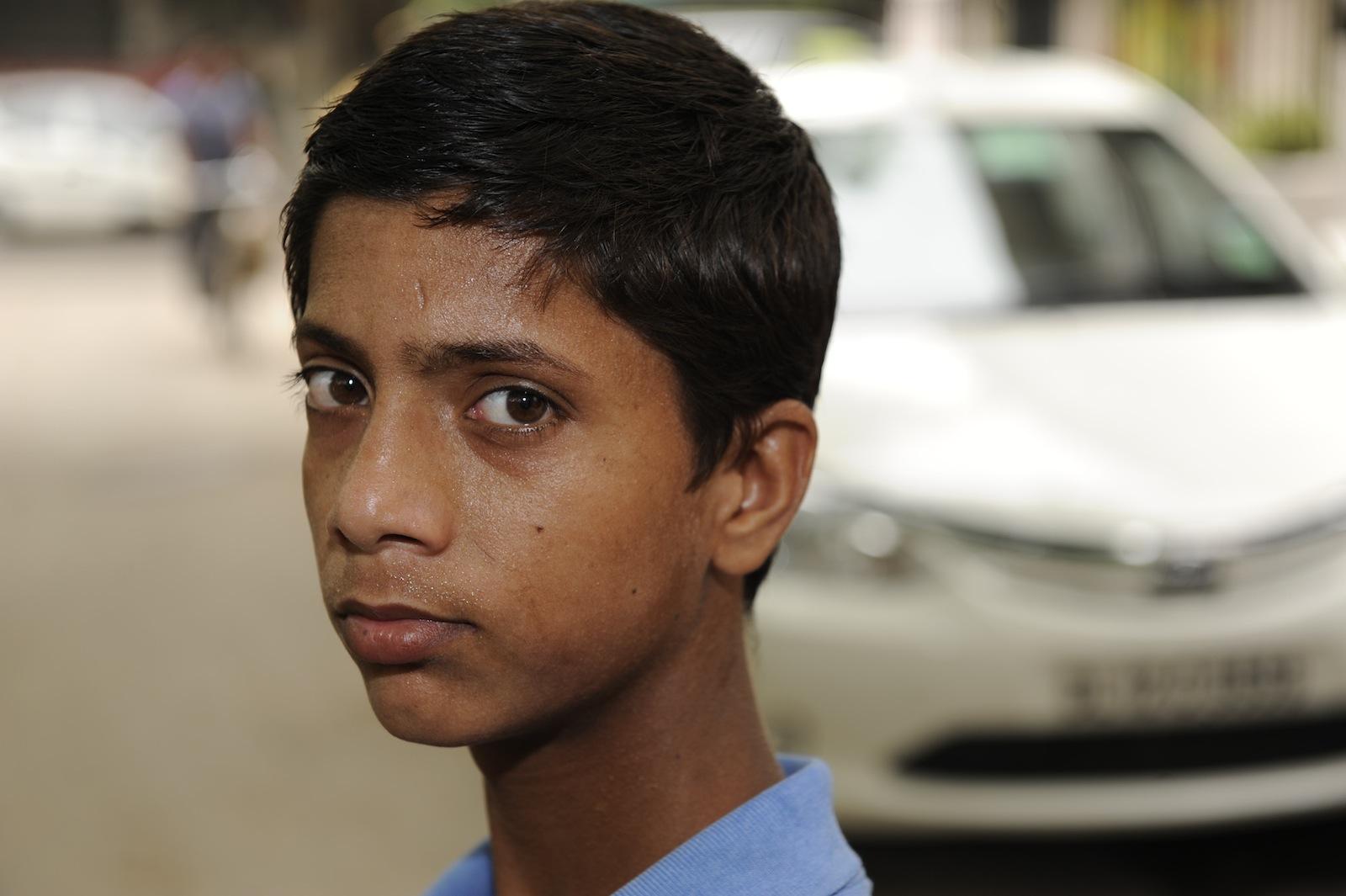
The nightmare begins
Imtyaz is woken by a kick. A stranger tells him and one of his friends, Amit, to come with him. They go down the stairs and into a dark, windowless room. There are a few men sitting on the floor with their legs crossed, bent over a large length of fabric which they are embroidering. Their bodies are shiny with sweat because it is so hot.
“This is where you’re going to work,” says the man. He gives them a needle each and shows them how to roll it back and forward between thumb and index finger.
They carry on doing this, hour after hour, until three o’clock in the morning.
“Doing that hardens your skin,” explains one of the adult workers. “Tomorrow you will start embroidering.”
Sold as a slave
The man from the village lied. He has sold them as slaves. Imtyaz and Amit work a sixteen-hour day, every day, without breaks. If they open their mouths one of the adults silences them immediately with punches and kicks. They sleep huddled together on the hard stone floor. Sometimes Imtyaz whispers to Amit at night.
“We have to run away!”
“But where would we go? The city is so big,” says Amit. “We don’t know anyone here. And we have no money.”
After a few days, Imtyaz’s back and shoulders are aching. His eyes smart and his fingers are full of pinpricks. The air in the room is thick with dust and lint, and makes Imtyaz cough. His face breaks out in festering boils. He tries to protest:
“It’s too hot here, we need fans and more water. My neighbour promised that I would be able to go to school!”
“You must be punished. You fell asleep on the job,” yells the man
The factory owner flies into a rage. He drags Imtyaz into a small room and starts to beat him all over his body. Imtyaz curls up in a ball and tries to protect his head with his arms. “I’m going to die,” he thinks, before everything goes black.
When he wakes up it is night. He is back in the room and everyone else is fast asleep. “I’m never going to get out of here. I’m never going to see my family again,” he thinks, weeping silently. A few weeks later, Imtyaz wakes in the morning with a fever. He can hardly hold a needle, let alone sew in a straight line. He leans his forehead on his arm for a second, although this is against the rules, and falls asleep. Seconds later he is woken by the feeling that his eye is on fire. Blood streams down his face and he can’t see. One of the supervisors has tried to cut off his eyelid with a pair of scissors.
“What are you doing?!” shouts Imtyaz, terrified.
“You must be punished. You fell asleep on the job,” yells the man.
Scared of the police
In the summer the heat reaches almost 50 degrees centigrade, and Imtyaz is allowed a couple of hours off on Sundays. He and Amit get a few rupees to buy water and food, but they don’t dare go far.
“Don’t talk to anyone,” the factory owner warns them. “If people find out that you work, the police will come and put you in jail.”
One day the factory owner rushes in and grabs Imtyaz and Amit, taking them out to the garden where his son is doing homework. He throws them a book each and says: “Pretend to read”. A few moments later two police officers come round the corner and go down into the basement. They are here to check that the factory doesn’t use child labour. As soon as the police have left, Imtyaz and Amit have to get back to work.
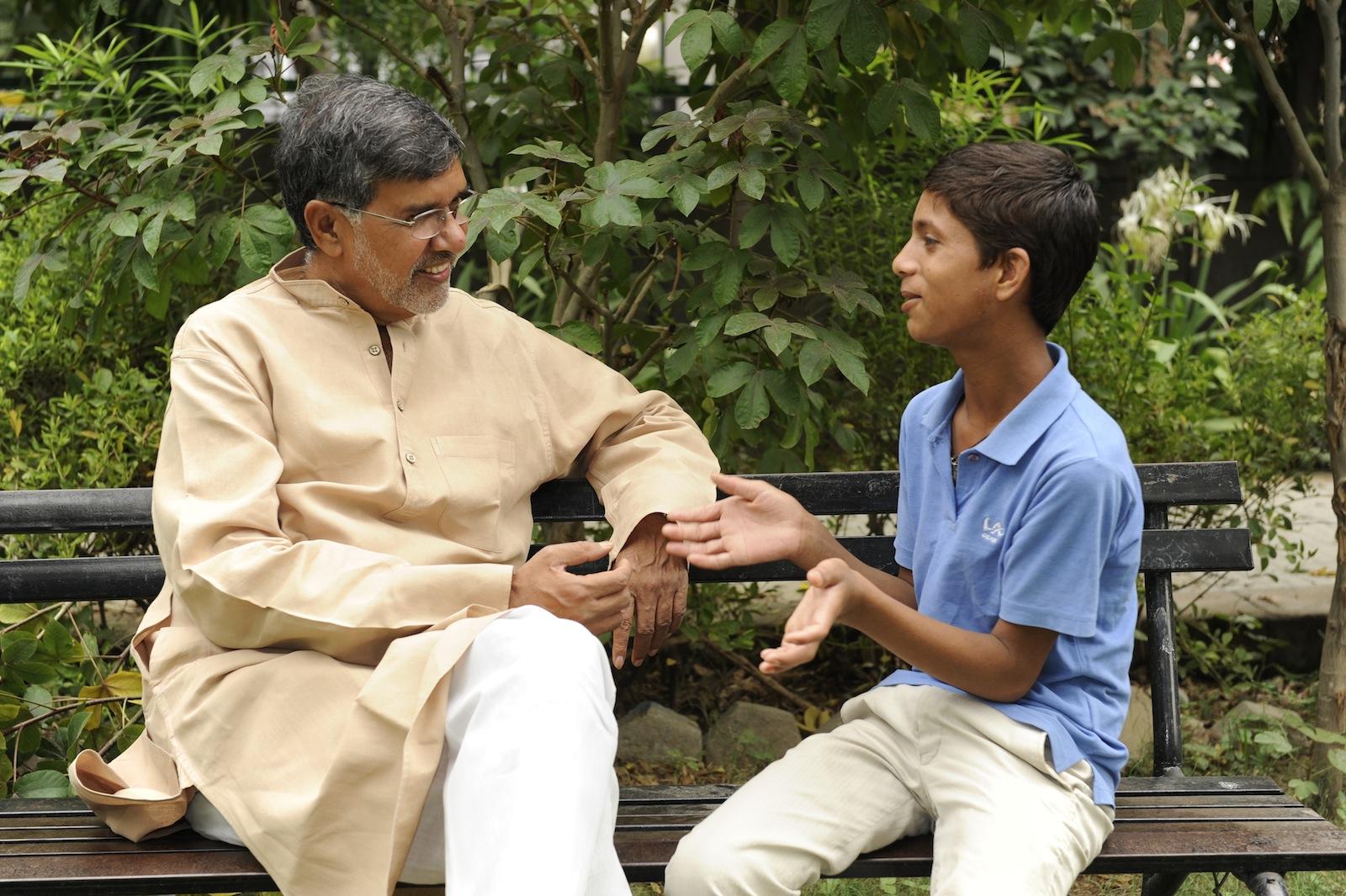
Along with Kailash and other children, Imtyaz fights against child labour and child slavery.
After almost a year, Imtyaz hears a sudden commotion outside. The door flies open and several police officers enter. Imtyaz’s friend starts to cry and stands up.
“Run, they’re going to put us in jail,” he says. But Imtyaz calmly sits still.
“I don’t care where they take us or what they do to me. Nothing could be worse than this.”
Back home
The rescue mission was carried out by Kailash’s organisation, BBA, along with the police. On that day, they freed almost 90 children. They find Imtyaz’s friends from the village in another factory in the same area. All the children are given medical care and help to recover at a special children’s home. Then Imtyaz gets to go home. He and his family weep together. First there are tears of joy, then of sadness as he tells them about life at the factory. But they are poor, and the neighbour who sold Imtyaz is rich and powerful. They don’t dare argue with him.
There is always a risk that the children who are rescued end up back in the same situation because of poverty. A year later, a BBA activist comes to visit. Imtyaz still isn’t attending school.
“Without education, Imtyaz has no future,” says the activist. “He can come and live at Bal Ashram, our home for liberated child workers, and go to school there.”
What happened next?
It was a tough decision for Imtyaz to move to Bal Ashram, hundreds of miles from his home. But now he has lived here for four years.
“I’m not sad, because I know I will return as an educated man and I’ll be able to help my family and my village. The teachers and children here are like a second family for me. Now I believe in myself and I have faith in the future.”
Along with Kailash and other children, he fights against child labour and child slavery.
“I will never give up this fight, even if I have a good job as an engineer!” he says. “One of my favourite memories is when we visited important politicians at home and told them about our lives. Their houses were like palaces! Some of them got angry and threw us out, but others offered us tea and listened to us. Kailash had asked us to urge the politicians to vote for improvements to the law on child labour. Later, that law was passed, and I think that was a great credit to us.”
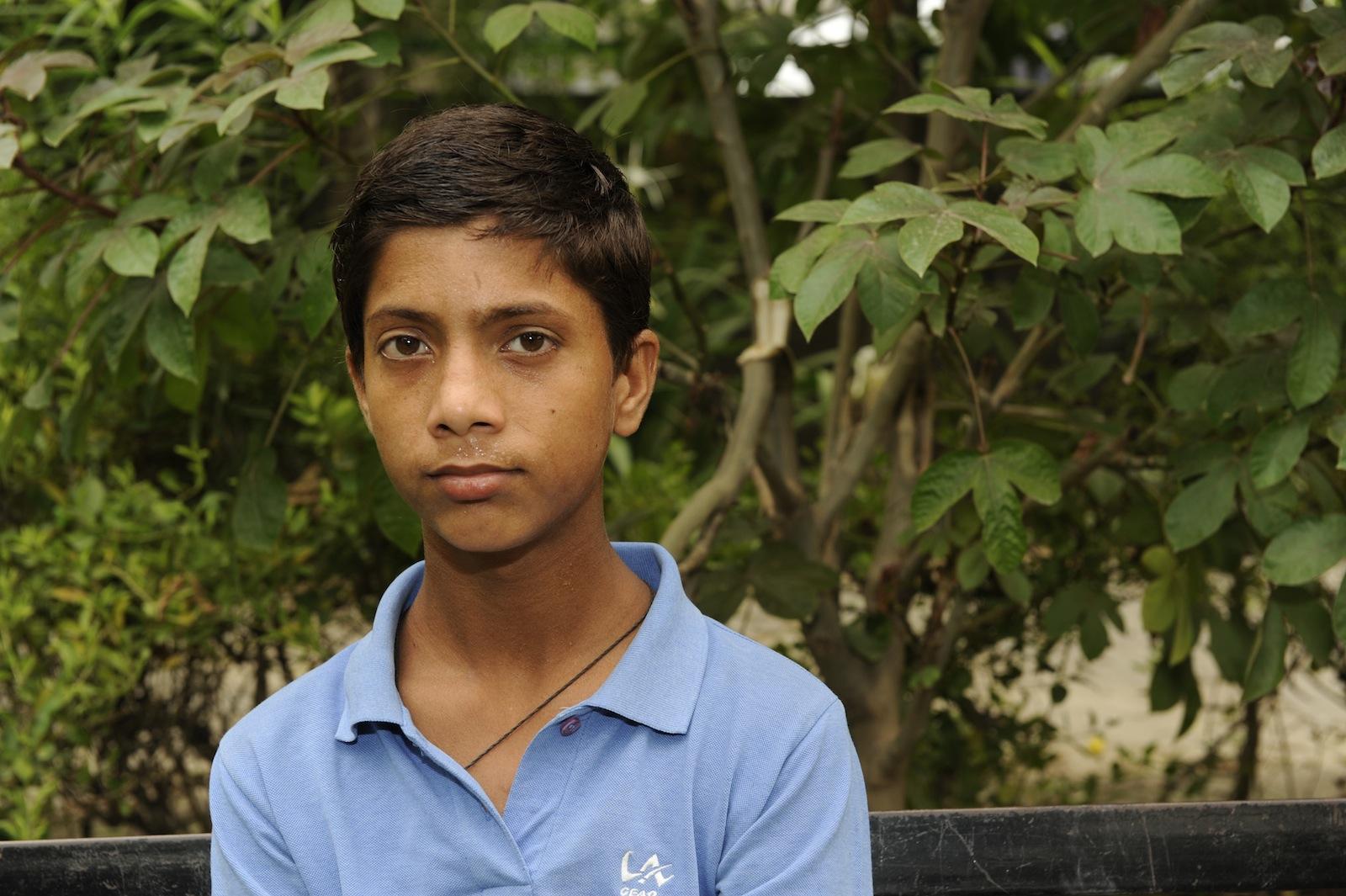
Imtyaz
Comes from: Bihar
Favourite things: School. Singing. Cricket and swimming.
Wants to be: An engineer.
Idol: Cricket star Sachin ‘Master Blaster’ Tendulkar.
Favourite foods: Mango, and my mum’s cooking.
Favourite school subject: Maths.
Looks up to: My parents and Kailash.
Dreams of: When no children have to work.
Related stories
Långgatan 13, 647 30, Mariefred, Sweden
Phone: +46-159-129 00 • info@worldschildrensprize.org
© 2020 World’s Children’s Prize Foundation. All rights reserved. WORLD'S CHILDREN'S PRIZE®, the Foundation's logo, WORLD'S CHILDREN'S PRIZE FOR THE RIGHTS OF THE CHILD®, WORLD'S CHILDREN'S PARLIAMENT®, WORLD'S CHILDREN'S OMBUDSMAN®, WORLD'S CHILDREN'S PRESS CONFERENCE® and YOU ME EQUAL RIGHTS are service marks of the Foundation.



